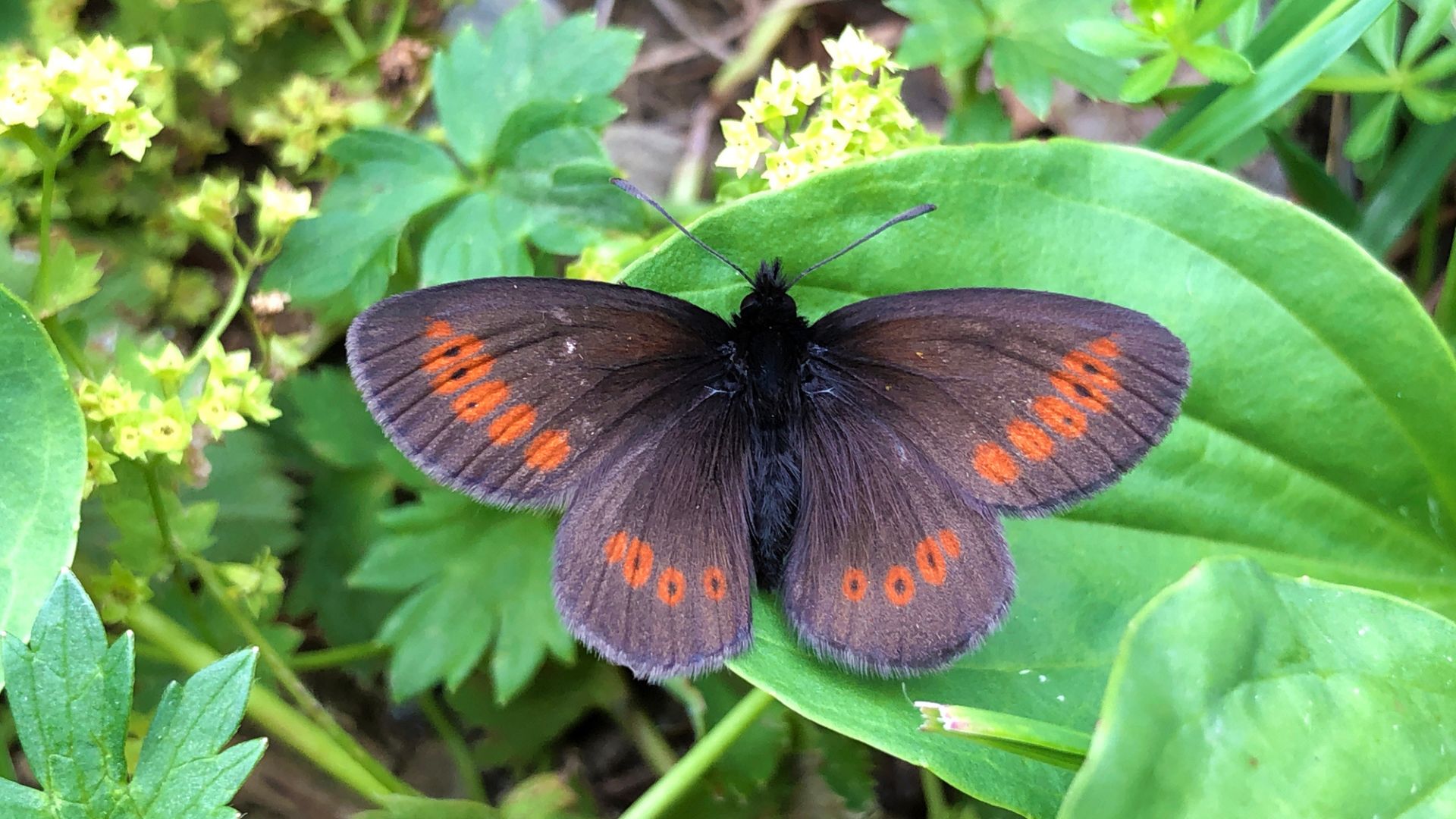Lake District hikers called to join hunt for England's only mountain butterfly as scientists fear climate change may squeeze it from its habitat
Conservationists are asking walkers in the national park to keep their eyes peeled for the rare mountain ringlet

Hikers enjoying the peaks in England's largest national park are being asked to keep their eyes on something other than the spectacular views this summer.
Wildlife experts at charity Butterfly Conservation are asking trekkers in the Lake District to keep a look out for England's only butterfly that lives in the mountains, the mountain ringlet.
The attractive insect is so hard to find that conservationists can't do it alone. They need boots on the ground to count numbers while they try to work how the species is being affected by climate change.
It's easier said than done though, as the winged creatures usually emerge in June and only fly for up to three weeks. This window is affected by weather and there have been sightings as early as end of May, and as late as mid-July.
The species is more commonly found in Scotland than in England, where it is so hard to find that scientists have yet to discover whether numbers are going up or down.
Butterfly Conservation North of England conservation manager Martin Wain said: "We would be so grateful if fell walkers could keep their eyes peeled for this lovely little butterfly and report their sightings. You might even discover a new colony. We urgently need to know more about where it is so we can learn more about how to protect it."
A post shared by Butterfly Conservation (@savebutterflies)
A photo posted by on
What does the mountain ringlet look like?
Adults are small at 3.5-3.8cm across (about 1.4in), dark brown with orange markings and only highly active in bright sunshine. They also keep low to the ground in short flights, pausing regularly to bask among grass tussocks or feed on the flowers of tormentil (yellow flowers with four petals) and heath bedstraw (low-growing plant with very small, white flowers).
All the latest inspiration, tips and guides to help you plan your next Advnture!
Butterfly Conservation is already investigating how the mountain ringlet is responding to climate change, and said sightings from the public would help to improve understanding of the species' life cycle, distribution and breeding success.
- Spot rare butterflies and other wildlife with the aid of the best binoculars
- Keep cozy as you hunt in the best gilets

Charlie is a freelance writer and editor with a passion for hiking, biking, wild swimming and active travel. She recently moved from Bristol to South Wales and now refuses to leave her front door without one of the following: lightweight hikers, wetsuit, mountain bike, tent. Having bought a fixer-upper home that backs on to protected woodland, her love of nature and wildlife has intensified and the dark skies have kickstarted a new fondness for stargazing.
